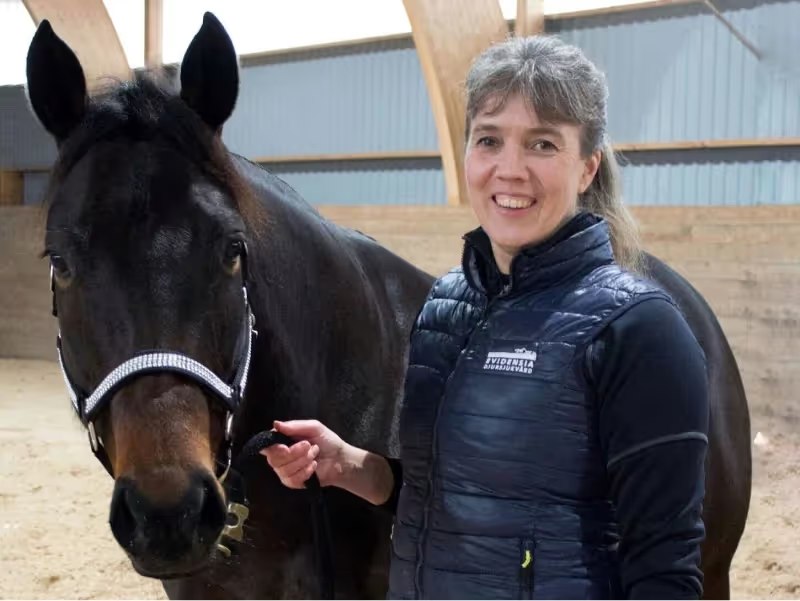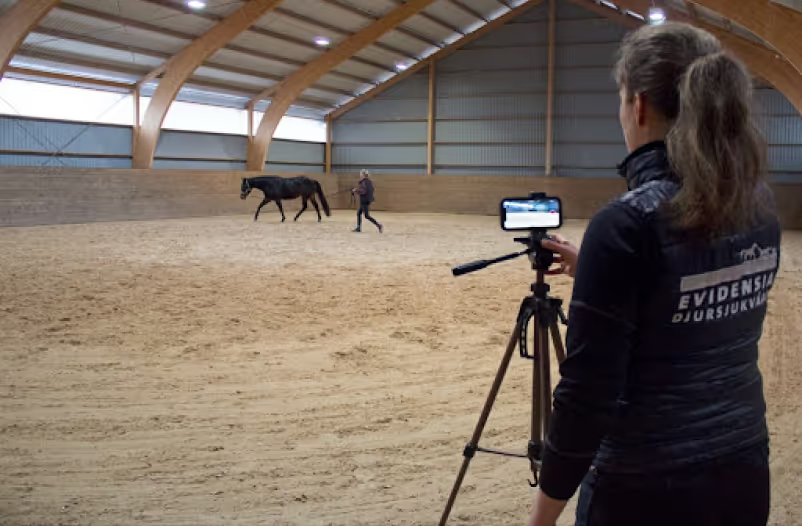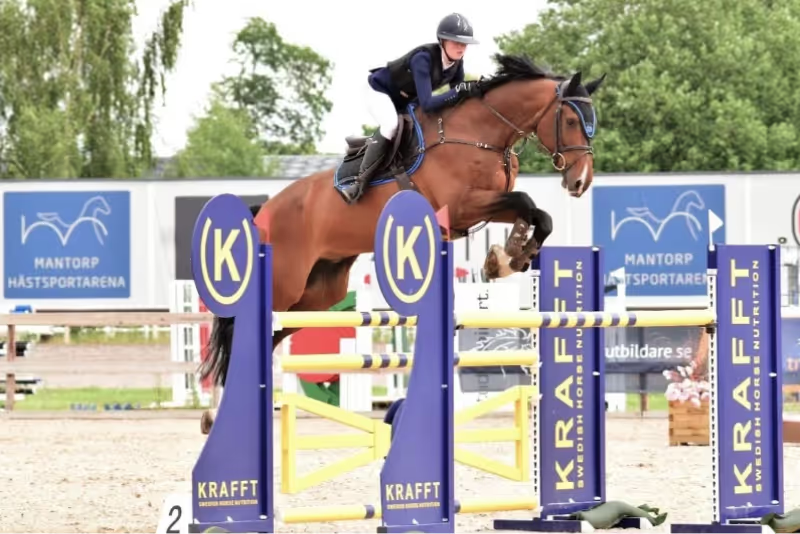
22 March 2024
"I Sleip all horses, except those that are too lame to trot up."
"It has! For example, it's great to have historical measurements and videos to look at when the horse comes into the clinic. If I haven't seen the horse in a while, it can be difficult to assess whether the asymmetry is a temporary change or a trend. Additional measurements between the visits, helps me to know what’s the case. The results also provide additional insights when I assess a horse through palpation, flexion tests, and, if necessary, nerve blocks to determine whether treatment is needed or if it's simply the horse's natural movement pattern."

"Another advantage is to be able to monitor horses with a tendon injury that face a lengthy rehabilitation period. Once they're passed the critical phase and are scheduled for visits every 6-8 weeks, it's helpful to track their progress between appointments. It's also valuable to monitor their return to active work, even after they've been deemed sound at the clinic and for a period after that. I have clients who opt to continue monitoring with Sleip to detect any potential relapses early or address any new issues that may arise."
"It's a whole different thing. Since there are clear instructions on how the horse owner should trot up their horse, we avoid getting videos of just the horse's legs or half of the horse. Videos that are impossible to assess. It is also great to have the slow motion video along with the quantitative data to relate to."
"They are happy to be able to measure between visits. Some live far away; they can send the Sleip videos and don’t have to come to the clinic. I usually ask the owner to send me an email when they have done a new recording, describing how the horse feels and if there are any issues. Having this additional information about how the owner experiences the horse adds context and makes it easier for me to assess the data. These emails also provide additional documentation."
"We haven't made any packages yet, but we charge a fee each time we provide feedback. This also prevents horse owners from sending in too many videos. Sleip's sharing feature has definitely helped us to charge for our time. We didn't do that when we received videos sent via WhatsApp, for example. This is a much more organized way, which feels good!"
With Sleip, I can monitor my horse together with Karolina without taking time off work. As a teacher, I don’t have vacation except during the summer holiday and the clinic is only opened late one evening per week. That makes travelling to the vet kind of a big project.
Recently, Viktoria’s showjumper, Colt Heart, began showing subtle signs of increased asymmetry. Unfortunately, he suffered an injury when kicked by another horse in the field. After treatment and a period of rest, the asymmetry persisted. A CT scan revealed damage to the fetlock joint, undetectable on X-rays and an injury in the medial collateral ligament of the coffin joint, inaccessible to ultrasound.

For the past 5 months, Colt Heart has been confined to a small pasture together with controlled exercise. To monitor his progress, Viktoria has "Sleiped" him monthly with the data sent to Karolina.
“This type of injury heals slowly, so we don’t feel the need to measure him more often at the moment. When we put him back to work, we will for sure Sleip more often to keep track of how he's doing. Combining Karolina's expertise and the objective data from Sleip will give me peace of mind as we increase the workload", says Viktoria.